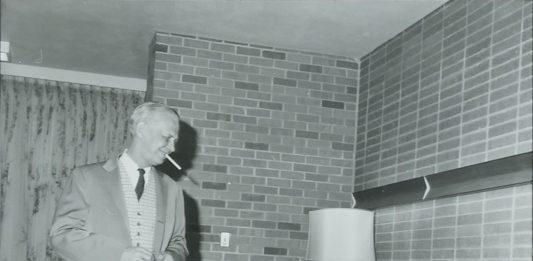
Willmoore Kendall has been called “the most important political theorist to have emerged in the twenty-odd years since the end of World War II.”[1] Whether he might share that privilege with other conservative figures such as Russell Kirk or Mel Bradford, it is worth reminding the teachings he left us all five decades after his death.
In contrast to Russell Kirk and Clinton Rossiter, Dr. Kendall stresses the conservative’s commitment to natural law. Let us recall that, according to St. Thomas Aquinas, natural law is the rational creature’s participation of the eternal law, through which God designs and directs all His creatures to move toward their own perfection.
Our author equals conservatives to traditionalists in a given society: The conservatives are the carriers of the principles of the fathers, who can be counted on to resist not change as such, but change in a direction contrary to or forbidden by the principles of the fathers.
Therefore, according to Dr. Kendall, change or amendment of the principles can indeed occur for a traditionalist or a conservative, though this needs to be done (i) by general consent, (ii) in strict accordance with the procedures laid down by the original founders, and (iii) in a direction which is not contrary to or forbidden by those original principles.
This third element is very important, since tradition as embraced by conservatives like Prof. Kendall ultimately requires more than just procedural conditions for change or development; there is also a material requirement which demands an alignment of the result of change with the state of things before such change or amendment. We could add that this opposes tradition from revolution, organic development from lab experiments, slow progress from social engineering.
Dr. Kendall accepts constitutional consensus, through which the people express their identity and sense of purpose in history. But, once more, that is not enough for a conservatist; he will also require that the content agreed through such constitutional consensus basically corresponds to the patrimony or intellectual heritage of those same people.
Such intellectual patrimony includes, first of all, recognising that God is sovereign of both nations as well as individuals belonging to those nations. This first characteristic clashes with jacobinism being imposed in 1789 and its heir, laicism, as we know it today.
Prof. Kendall adds that constitutional consensus must not just acknowledge God, human beings and nations, but also intermediary communities like families or associations, which the state cannot but recognise. Moreover, democracy is not a goal in itself, but has value as a means to achieve justice.
The majority rule brings about stability, but there is also a need for ethical respect. Sole majority rule is not enough. Dr. Kendall agrees with Anatole France’s quote: “Foolishness repeated by thirty-six million mouths is none the less foolishness”. Majorities cannot oppose reality; Prof. Kendall uses two examples to side with Anatole France on this point: a majority will never repeal the law or gravitation, or reduce π from 3.14.
He goes on to criticise John Locke for holding the same principle that an individual has an obligation to submit to the determination of the majority, and to be concluded by it. Siding rather with Plato, Kendall insists that we must be clear in our minds about ethics before we can attempt anything in the way of a political decision.
Particularly in Plato’s dialogue Crito, it seems clear to Prof. Kendall that not all citizens are obliged to obey all States, but that given a kind of state where the mentioned rules are followed, there is on the citizens’ part a crystal-clear obligation to obey.
[1] Willmoore Kendall Contra Mundum, edited by Nellie D. Kendall, New Rochelle, 1971, p. 9. The summary of Willmoore Kendall’s thinking as presented in this article is taken from that same source.
Source of the picture: University of Dallas.



 Subscribe
Subscribe